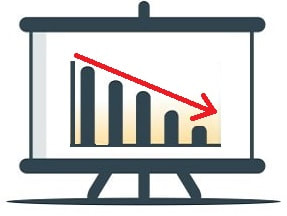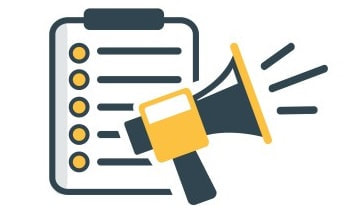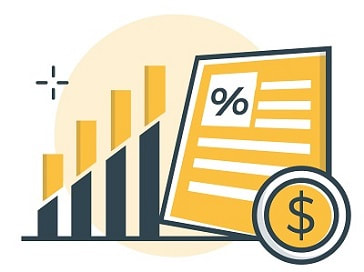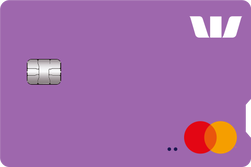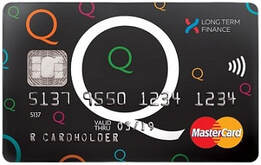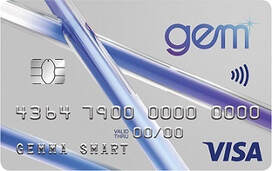Credit Cards for Bad Credit - The Definitive New Zealand Guide
Our guide covers the best credit cards for anyone with debt history, as well as popular alternatives that help get you on track with money.
Updated 22 January 2024
Many New Zealanders have a bad credit history but regain access to a credit card. This guide explains how to rebuild your credit and prepare for the application process. We also list credit cards we consider to be the most suitable for anyone with a difficult credit history.
Our guide covers:
Do you want to be debt-free?
Many organisations help, including Debtfix, Ngā Tāngata Microfinance, CAP and Good Shepherd. Best of all, they're free and strive to get your debts under control and repaid. We strongly suggest contacting one of them given bad credit and dragging debt is expensive, stressful and a waste of energy.
MoneyHub Founder Christopher Walsh explains bad credit cards (and the alternatives available) in a dedicated video:
Our guide covers:
- 8 things to do before applying for a new credit card when you have bad credit
- Best Credit Cards for Bad Credit
Do you want to be debt-free?
Many organisations help, including Debtfix, Ngā Tāngata Microfinance, CAP and Good Shepherd. Best of all, they're free and strive to get your debts under control and repaid. We strongly suggest contacting one of them given bad credit and dragging debt is expensive, stressful and a waste of energy.
MoneyHub Founder Christopher Walsh explains bad credit cards (and the alternatives available) in a dedicated video:
What causes bad credit, and how does it affect credit card applications?
New Zealand's credit reporting processes mean that paying a bill late or missing it altogether means the company you owe money to may notify a credit agency. One incident won't ruin your credit score, but more than two or three will. If your credit history has a few issues, arranging new credit will be difficult as companies see you as high risk when it comes to repayment.
Credit cards are unsecured debt which means most charge high interest. If you have bad credit, you'll unlikely qualify for an 'affordable' (i.e. low interest) credit card. Instead, credit cards which charge interest rates of 25%+ p.a. will be the most realistic option.
Warning: If your financial situation is already stretched, applying for another credit card may make a bad situation worse. There are plenty of alternatives for emergency financial assistance (our detailed Work and Income hardship guide for urgent costs and living expenses has more details).
Credit cards are unsecured debt which means most charge high interest. If you have bad credit, you'll unlikely qualify for an 'affordable' (i.e. low interest) credit card. Instead, credit cards which charge interest rates of 25%+ p.a. will be the most realistic option.
Warning: If your financial situation is already stretched, applying for another credit card may make a bad situation worse. There are plenty of alternatives for emergency financial assistance (our detailed Work and Income hardship guide for urgent costs and living expenses has more details).
What information do credit card applications ask for?
While every credit card issuer requires different things, generally you can expect to be asked the following:
Personal details:
Financial details:
Personal details:
- Your name, date of birth, number of dependants, ID types, contact address, email and phone etc.
Financial details:
- Current employment and income details - amount, frequency, amount before or after-tax etc.
- Details of savings and investments, debts, home loan, credit/store cards/overdraft, personal or student loans or hire purchases etc.
- Expenses - e.g. rent, child support, rates/property maintenance, superannuation contributions etc.
- Essential living costs - e.g. food, transport/vehicle, utilities, medical etc.
- Discretionary living costs - e.g. private school, insurances, donations etc.
8 things to do before applying for a new credit card when you have bad credit
Banks and credit card issuers are cautious and don't take risks when it comes to approving credit cards. To give yourself the best chance of success, you’ll need to sort out a few things. If you don’t, your credit card application will more than likely be rejected.
Our list explains how to prepare yourself and get the best chance of being approved for a credit card when you have bad credit.
Our list explains how to prepare yourself and get the best chance of being approved for a credit card when you have bad credit.
Review your credit historyRequest your information for free so you know what companies are seeing when you apply. If you've missed a credit card payment or see an error, it's important to contact the provider to sort it out. This way, your history can be repaired. If you apply for a credit card and then get rejected, this will be added to your credit history. Presenting the best score upfront is essential to avoid 'sabotaging' your history.
Credit history agencies include Centrix, Credit Simple and Equifax. More details: Credit scores and credit reporting |
Quantify your employment situationEvery time you apply for a credit card, you'll need to be clear about your income level. The credit card issuer then assesses your ability to repay what is owed.
Know this: If you don't have a job or can't show a regular source of income, it's unlikely you'll be approved for a new credit card. Credit card companies like to see one or two employers, not a lot of income from one-off work and projects. For this reason, if your income isn’t stable, it's unwise to apply for a credit card as a rejection will further count against your history. Our loans for beneficiaries guide explains proven options that can help. |
Assess your existing assets and debts (and prioritise repayment)With every credit card application, you’ll need to outline your existing assets and debts. If you have personal loans and other credit card balances outstanding, it’s unlikely you’ll be approved if what’s owed is already causing repayment issues.
Assets like cash in a bank account are important to credit card providers. It shows you can manage your money and have savings. Credit card providers don’t like taking risks – if you appear financially troubled, a rejected application is almost certain. |
If you've just been rejected for a credit card, don’t apply for one right now - wait a couple of monthsCredit card applications appear on your credit history – if you’ve been rejected, applying for another credit card right away looks desperate and will stick to your records. This means that you’ll have two applications and zero approvals. If you make more applications, the rejections will most likely keep coming.
To avoid this issue, it's best to wait a while before making an application and have your finances in order (per this checklist). If you do, you'll give yourself the best chance of success. Why do my credit card applications keep being rejected?Credit card issuers, by law, have to be responsible lenders – they can’t give you a credit card because you apply for one. You’ll need to meet income, asset and debt criteria, with your credit score being a major factor in approval. Quite simply, if you have existing debts, a history of repayment defaults and/or a limited income, a credit card company is unlikely to approve you.
|
If you’re rebuilding your credit history, always make (at least) the minimum repaymentDepending on your credit card, the minimum repayment will be between 2% and 5%. By always making a repayment on time, your behaviour will be reported as positive and help to improve your credit history as you show you’re trusted. If you fall behind, you’ll incur late fees and penalty interest rates. Credit card interest rates are always high, so the more you repay, the cheaper the debt is.
|
Check you actually need a new credit cardThere are many alternatives to getting a new credit card. You may wish to apply for a balance transfer credit card once you’ve got your credit score under control. This will eliminate or reduce the cost of repayments considerably.
|
NEVER make cash withdrawals on a credit cardThe interest rate you’ll pay will be over 20% or even 25% p.a., and while this doesn’t sound like much, it’s difficult to repay if you’re only able to make minimum repayments. You may withdraw $200, but if it takes you three years to repay it, you could end up paying $100 in interest and fees. We believe withdrawing money on your credit card may alert lenders that you can’t manage your finances and this may cause future applications to be rejected.
|
If you can't get any of the highlighted best credit cards for bad credit, it’s a good idea to avoid borrowingOur guide to debt help suggests alternatives, and financial support is always available from Work and Income for hardship situations. There’s also a list of options in our Beneficiary Loans guide, many of which apply to anyone with limited income.
|
Best Credit Cards for Bad Credit
Warning: The credit cards listed below are based on their market position and appeal to customers with a challenged credit history. By including these credit cards, we do not endorse them, nor do we guarantee that your application will be accepted.
Important: Q Mastercard and GEM Visa
Our view: If you have not applied for a credit card recently, or never had one, this list is a good place to start.
Important: Q Mastercard and GEM Visa
- Both of these cards have high interest rates.
- If you do not repay the balance in full, you'll pay 25.99% p.a. on whatever is owed. This can cause you to carry long-term debt and affect your credit rating if you fail to make repayments later on.
- Do not apply for a credit card out of urgency if there is a chance you cannot repay it. Our Work and Income Emergency Grants guide explains how you can get help with urgent costs.
Our view: If you have not applied for a credit card recently, or never had one, this list is a good place to start.
Westpac Fee Free Mastercard
Our View: The Westpac Fee Free Mastercard charges a below-market interest rate. Cardholders will need to ensure prompt repayments to avoid costly interest charges.
The deal:
The deal:
- Interest rate: 12.90% p.a.
- Annual fee: $0
- Interest Free Offers on Purchases: Yes - up to 55 days. The credit card is accepted everywhere Mastercard is accepted.
- Monthly payments: Must be above the monthly minimum (either 2% or $5 of the balance owing - whichever is greater)
- Apply: For more details or to apply, click here.
- Credit limit: Minimum $500
Q Mastercard
Our View: The Q Mastercard charges an above-market interest rate but delivers a generous three month repayment period. Issued by FlexiGroup, this credit card offers more benefits than any bank-issued card. Cardholders will need to ensure prompt repayments (before the zero-repayment term ends) to avoid costly interest charges.
The deal:
The deal:
- Interest rate: 28.50% p.a.
- Annual fee: $50 (charged in two $25 instalments every six months). Other fees are outlined here.
- Interest Free Offers on Purchases: Yes - minimum 3 months zero interest, zero payments on all purchases. No minimum spend. The credit card is accepted everywhere Mastercard is accepted.
- Monthly payments: Must be above the monthly minimum (either 3% or $10 of the balance owing - whichever is greater)
- Apply: For more details or to apply, click here.
- Our review: Q Mastercard
GEM Visa
Our View: The GEM Visa charges an above-market interest rate, similar to its Q Mastercard competitor. Issued by Latitude Finance, this credit card offers more benefits than any bank-issued card. Cardholders will need to ensure prompt repayments (before the zero-repayment term ends) to avoid costly interest charges.
The deal:
The deal:
- Interest rate: 25.99% p.a.
- Annual fee: $52. Other fees are outlined here.
- Interest Free Offers on Purchases: Yes - 0% for 6 months on all Visa purchases $250 and over. The credit card is accepted everywhere Visa is accepted. Other retailers may offer interest-free and repayment holiday deals.
- Monthly payments: Must be above the monthly minimum (either 3% or $20 of the balance owing - whichever is greater)
- Apply: For more details or to apply, click here.
- Our review: GEM Visa

